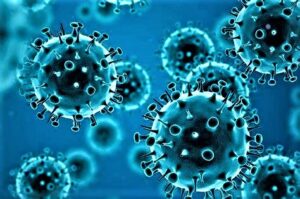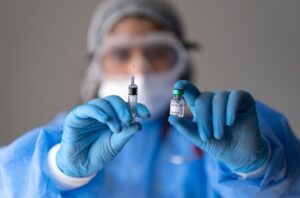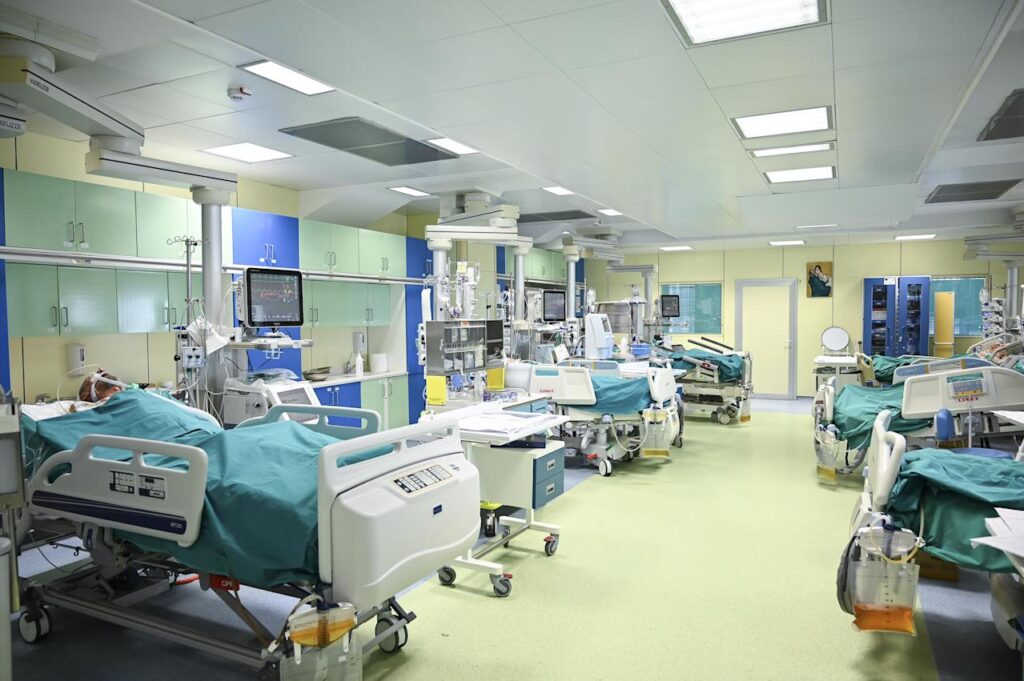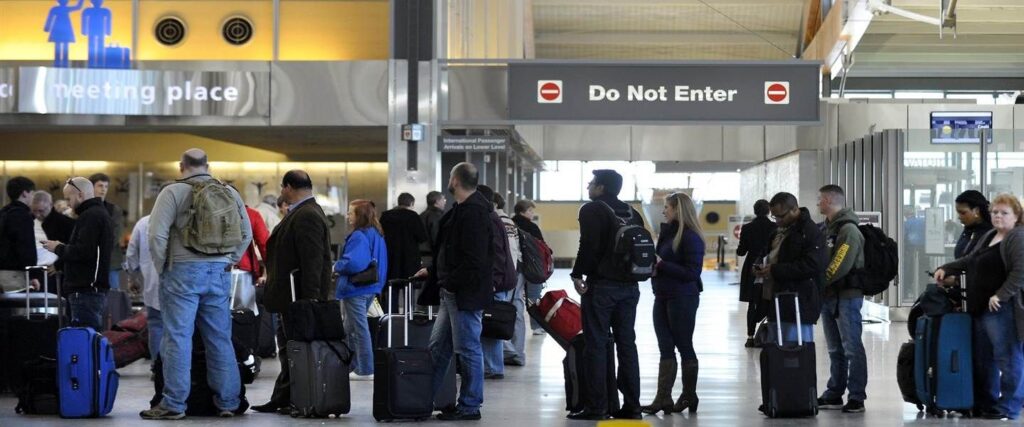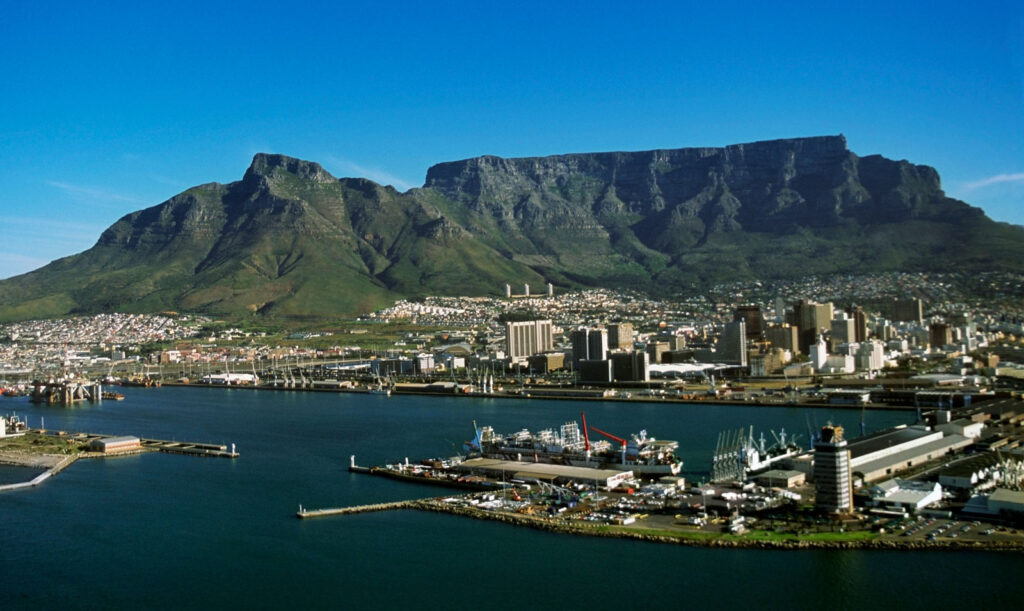The Impact of Omicron Infection in South Africa
TRANSCEND MEMBERS, 6 Dec 2021
Prof Hoosen Vawda – TRANSCEND Media Service
The Virus Strikes Back
4 Dec 2021 – South Africa announced its first case of COVID-19 on March 5, 2020 and currently has one of the highest case incidences on the continent.[1] The population of South Africa will be increasing by 1,764 persons daily in 2021. As of 1 January 2021, the population of South Africa was estimated to be 59,572,622 people, the majority being people of African origins.[2] South Africa is divided into nine provinces.[3] On the eve of the 1994 general election, South Africa’s former homelands, also known as Bantustans, were reintegrated, and the four existing provinces were divided into nine. The 12th, 13th and 16th amendments to the Constitution of South Africa changed the borders of seven of the provinces. The provinces vary considerably in size. The smallest is the over populated Gauteng, housing Johannesburg, the “City of Gold” a highly urbanised region, the financial hub and vibrant centre of South Africa. In contrast, the largest province is the vast, arid and empty Northern Cape, which takes up almost a third of South Africa’s total land area.[4]
In the past three decades South Africa has been the epicenter of HIV / Aids infections, mostly acquired as sexually transmitted disease, compounded by tuberculosis of different types and in the past five years there is an emergence of tuberculosis, which is affecting patients from all walks of life, including doctors and higher social echelons of the community. Pulmonary tuberculosis is infecting different races, not necessarily confined to the multitude of disadvantaged populations, post freedom in 1994, from the brutal, oppressive government of apartheid regime,[5] dominated by the white minority of South Africa. Apartheid means “apartness” in the language of Afrikaans, of the White Nationalist Party prior to 1994, having ruled the country and oppressed the South African people of colour, since 1948.
On 18th November 2021, Dr. Angelique Coetzee, a private practitioner and The Chair of South African Medical Association, told Reuters[6] that she noticed seven patients at her clinic who had symptoms different from the dominant Delta variant, albeit “very mild”. On 28th November 2021 Reuters, reported that a South African doctor who was the first to suspect a different coronavirus strain among patients said that symptoms of the Omicron variant were so far mild and could be treated at home.[7]
The South African national and other television channels have announced that the SARS Covid 19 infections have exponentially risen to 16055 cases, presently since the SARS B.1.1,529 was officially announced on 25th November 2021
Cynics usually state that nothing good comes out of Africa and this was nefariously demonstrated by the discovery of the new progeny of the SARS Cov-2 virus in south Africa when a general practitioner noted a different pattern of symptomatology in her patients in the Gauteng province and the Lancet Laboratories, a private concern, were quick to identify the missing spike protein on the viral particle when tested with nasopharyngeal swabs from patients who presented to Dr Angelique Coetzee with symptoms of tiredness and fatigue rather than upper respiratory symptoms, as were initially observed either with the first, second or third waves of infections, globally and in South Africa, involving the other variants. As scientists work to collect laboratory data on the Omicron COVID variant, cases are being reported from an increasing number of countries.
In a press briefing, Dr. Anthony Fauci, Chief Medical Adviser to President Joe Biden and Director of the U.S. National Institutes of Allergy and Infectious Diseases, said cases had been confirmed in at least 20 countries and “you’re going to expect to see those numbers change rapidly.” To date, there are 38 countries reporting the presence of patients infected with the Omicron variant of concern. He has reiterated that “We’ve said it over and over again and it deserves repeating,” he added: “If you’re not vaccinated, get vaccinated. Get boosted if you are vaccinated.”
Concern about Omicron flared last week as data on the variant caught the attention of scientists, who expressed unease about its large number of genetic mutations. Governments soon caught on, and within days it had been flagged as a new variant of concern by the World Health Organizatiom a rapid turnaround. However, the first Omicron samples were collected back in early November 2021, according to the GISAID virus reporting network. GISAID shows that the first samples were collected on 09th November 2021 in South Africa, and the first genomic data was submitted on November 22 and November 23 by scientists in Hong Kong, Botswana, and South Africa. The GISAID network allows scientists to upload genetic information on viruses in a collaborative way. This table shows the earliest collected Omicron samples. While South Africa was “punished” with flight bans, scientists in all three countries have been widely praised for their work in alerting the world to the variant. In South Africa, the first sequences were submitted by Tulio de Oliveira and colleagues at the University of KwaZulu-Natal as well as Daniel Gyamfi Amoako and colleagues at the National Institute for Communicable Diseases of the National Health Laboratory Service. From Botswana, the first sequences were submitted by Sikhulile Moyo and colleagues at the Botswana Harvard HIV Reference Laboratory. rom Hong Kong, the first sequences were submitted by Ka Lun Tsang and colleagues at the Hong Kong Department of Health. This is not an exhaustive list of the scientists and teams involved. Jeremy Kamil, a virologist at Louisiana State University Health Shreveport, highlighted more last week. “These people are forgotten over and over again,” he told Newsweek. “And we expect them to keep sharing their data?” Shortly after sensing the first cases caused by the variant in South Africa, de Oliveira and his team alerted South African authorities and the World Health Organization to the variant, he told The New Yorker.
Meanwhile, days after the first Omicron sequences were submitted to GISAID, Tom Peacock, a virologist at Imperial College London, submitted the first public request for the variant to be given a Pango classification, “B.1.1.529”, as it was known before it was called Omicron. It should be noted that while the first samples of Omicron were collected from South Africa, it is not known where the variant itself originated. References to Omicron as the “South African variant” have been criticised.[8]
On 26th November 2021, the World Health Organisation converged to discuss an emerging variant of concern of SARS COVID-19. The highly mutated variant, given the name Omicron. The discovery of this new variant follows the observation of the Mu variant in January 2021, and the emergence of the Delta variant in December 2020, which is still responsible for the vast majority of COVID infections.
World Health Organisation has highlighted the vulnerability of communities, especially those who are already affected by humanitarian crises, to the risks and impacts of health emergencies and disasters.[9] The Covid pandemic is now nearly 24 months of death, destruction of livelihood, national problems and global acrimonies, as never experienced since World War 11, with a 260 million global estimated cases and 5·2 million deaths.[10] The previous variants of concern emerged in a world in which natural immunity from COVID-19 infections was common, this fifth variant of concern has emerged at a time when vaccine immunity is increasing in the world.[11] The emergence of the alpha, beta, and delta SARS-CoV-2 variants of concern were associated with new waves of infections, sometimes across the entire world.[12]
SARS Cov-2 pandemic has serious impact upon the South African society in the social, economic, health, environmental, and technological sectors. The pandemic has destroyed the lives of millions in South Africa and the measures that President Cyril Ramaphosa and his government have taken, including declaring a national state of disaster and other measures to effectively respond to, contain, mitigate and curb the spread of the virus, are not improving the desperate situation. COVID-19 has brought to the fore systemic weaknesses, highlighted a lack of capacity in addressing COVID-19-related challenges, and underscored disparities as well as inequalities in all sectors in South Africa. The concerted drive for vaccinating the nearly 60 million South Africans, with the commencing in March 2021, has only been successful in vaccinating only 42% of the population, to date.
The impact, the pandemic has in South Africa may be classified into the following sectors of the South African society:-
- Social Isolation
South Africans, by nature are outdoor, socially friendly and happy humanoids, irrespective of the legacy of apartheid oppression and segregation. The government-mandated lockdown has restricted movement of people with the exception of those who work in essential services such as police, health, fire, army, pharmacies, supermarkets, and transportation. and, more recently, informal food trading. Everyone else is required to stay indoors except on the rare occasions that they need to seek medical help, buy groceries from supermarkets, or medication from pharmacies. Moreover, these outlets are also required to ensure that no more than 50 people are on their premises at any given time. The social distancing policy has led to the suspension of all religious gatherings, schooling, and social-cultural functions. Homeless people have been relocated into temporary shelter that is well spaced out. However, there are strong challenges that emerge from the lockdown and the social distancing policy. This has created great unhappiness and depression has become rampant.
- Domestic Violence
South Africa has also become an agitated, impatient and violent society, post freedom. Therefore, it has a serious problem of general domestic violence, with its progenies of gender-based violence (GBV) and violence towards children. During the lockdown 8,700 cases of GBV were reported from March 26, 2020, when the lockdown began, to April 3, 2020.[13]
- Substance Abuse and Alcoholism
Just prior to the national lockdown, it was interesting to note the long ques of people waiting outside liquor stores to stockpile supplies of alcohol, not food, during the lockdown. Challenge relates to drinking are serious and it is to be noted that motor vehicle accidents were significantly decreased during this period/ Alcohol sales and consumption have been prohibited in order to minimize intoxication and the resulting social aggravations and conflict among people stuck together during the lockdown, especially in dysfunctional homes and incohesive or crime-ridden communities. However, despite the societal discomfort that this has caused, particularly as it relates to alcohol and other addictions, the minister overseeing the police reported that the lockdown and restrictions on alcohol sales and consumption have reduced other types of crime in South Africa. Drug addiction increased during this period and it was reported that designer drugs were often delivered to affluent homes like fast foods.
- Effects on Informal Settlements
Another challenge relates to the rural, peri-urban, or informal dwellings where closely-located shacks and the absence of clearly laid out infrastructure makes social distancing impossible. For those living in overcrowded shacks, staying outside seems healthier than being indoors. Thus, localities with crowded and informal dwellings have a lot of people outside, only to encounter police and army patrols enforcing stay-indoor orders. Consequently, there are growing tensions between society and the army, which has been called in to supplement the efforts of the police in enforcing the lockdown. For example, several social media videos have emerged showing civilians found defying the lockdown order being forced through military-style drills by security personnel.
- Economic Impact
The pre-existing high levels of poverty in South Africa have been aggravated by the stay-at-home orders which mean no economic activity and, therefore, no income-earning opportunities, especially for the self-employed and the informal sector which consists mostly of small and medium scale enterprises. Consequently, society is already beginning to agitate for easing of the lockdown policy. Initially, buses and mini-buses, locally called “kombi,” were allowed to board only a minimum number of passengers in order to comply with social distancing requirements, and operate only for limited hours to transport essential personnel. However, this made the transport business unprofitable. The resulting hardships for operators and passengers alike led to revised regulations that now allow mini-buses to board up to 70 percent of their capacity, while also requiring everyone to wear masks.[14]
Furthermore, numerous small as well as major businesses closed down during this period and countless restaurant have shut their doors because of the lockdown. This has resulted massive job losses and unemployment. This had an effect on youngsters joining lucrative crime syndicates resulting increased criminal activities in an already corrupt society, police force and highest levels of government in South Africa.
The South African economy was technically already in a recession prior to the lockdown. The formal productive sector is now under tremendous additional pressure from the coronavirus response measures. For example, the expenditure required to mitigate the spread of the pandemic such as for testing equipment and implementing control measures, relocating and caring for the homeless, conducting contact-tracing, and treating the infected will place an extra burden on the national treasury which was already severely constrained by repeated bailouts of poorly performing state-owned enterprises. The Reserve Bank of South Africa has responded to the crisis with a 100 basis-point reduction in the prime interest rates.
This, in turn, will lead to a reduction in short-term interest rates in order to make the servicing of existing debt more affordable to debtors, whether households or firms.6 Banks and other financial 4 | Wilson Center – Africa Program institutions are offering three-month payment holidays for debt and credit cards to allow households and firms to adjust during and immediately after the lockdown. Other financial institutions are suggesting that consumers file claims with their credit life insurance policies to cover loans that they are otherwise unable to pay. However, to date, other financial commitments such as rent payments have not been temporarily suspended. Further compounding the economic situation and outlook, Moody’s recently downgraded South Africa’s sovereign credit rating to junk state (Ba1 with a negative outlook),7 the timing of which was considered as insensitive by many in South Africa. This downgrade has led to South Africa’s removal from the Global Bond Index and will increase South Africa’s cost of borrowing in international financial markets. As a result, the South African Rand (SAR) has depreciated significantly against major currencies, e.g., from R15 to USD$1 to R18.59 to the dollar.8 South Africa’s ability to rally out of this dire economic situation post-COVID-19 will be a significant challenge and will also depend on how well the global economy as a whole, recovers.
- Health Sector
The Omicron will result in additional pressure on health care facilities as more infections emerge, should the transmissibility rate continue and current mitigating measures fail to curb the spread of the virus. Testing equipment and centers are being increased and isolation centers are being created to help isolate the infected. The demand for intensive care beds and ventilators is likely to increase as more people become infected. Frequent washing of hands, staying hydrated, staying indoors, avoiding handshakes and body contact, and practicing good personal hygiene have been recommended as useful measures for curbing the spread of the virus. All these are being practiced as best as possible by South Africans, some of whom do not have access to running water, and hand sanitisers are unaffordable for those who are earning less than 2 US$ per day.
Another area of serious concern is that the Covid Pandemic and presently the Omicron variant which is highly transmissible, have resulted in the general neglect of non-communicable diseases in South Africa. The medical resources being deployed to combat Covid-19 have resulted in diseases like hypertension , Diabetes Mellitus, Ischaemic Heart Disease in patients, with chronic medication cannot get access to their monthly supply of medicine resulting in higher morbidity and mortality in these patients. The fear of visiting healthcare facilities during the pandemic is another counter factor in the sustained health of patients.
- Environmental Issues
However, there are larger environmental challenges beyond the control of the individual. First is the poor water and sanitation facilities in some communities. South Africa is a water-scarce country in which some communities lack access to clean water. In addition, sanitation facilities are in a deplorable state in many townships, with many households often having to share highly deficient facilities. Moreover, littering in some communities, coupled with poor waste pickup service, creates unhygienic environments. In general, these poor sanitation conditions facilitate the spread of diseases. All of these factors taken together make practicing good hygiene, frequent washing of hands, and staying hydrated a significant challenge for those South Africans who have access only to contaminated or otherwise poor-quality water. Heavily polluted rivers with indestructible plastic waste from single use packaging, for fast foods, is emptying into the Indian and Atlantic oceans along the South African coastline, with a serious effects of sea life and disturbance in the fragile marine ecosystems.
- Technological Sector
Technology has also played a double-edged role in the outbreak and control of this pandemic. On the negative side, social media is rife with diverse opinions about how this disease started, as well as a great deal of fake news and misinformation about how it can be cured. Self-styled medical “experts” are sharing all kinds of homemade remedies that supposedly can prevent or cure the infection. This has clouded the official use of social media to disseminate accurate and useful information to the general public. On the positive side, technology has provided a solution to contact-tracing, which is an essential tool in curbing the spread of the disease. The use of cell phone location tracing enables officials to accurately identify where an infected person has been, and which cell phone numbers were in their proximity. The holders of these cell phone numbers can then be contacted for testing to determine whether they contracted the disease through close proximity to the primary infected person. This innovation has solved the contact-tracing challenge in a reliable and scientific manner since cell-phone use is widespread in South Africa, and almost everyone carries their cellphone wherever they go. Modern information technology has also allowed people to work from home, churches and artists to livestream their services and productions, and schools to conduct lessons remotely and even confer academic degrees. These practices have helped to ensure that people do not gather and thereby increase the spread of the virus.
- Education and Training
The repeated lockdowns in South Africa, of varying degrees, have significantly disrupted all levels of training and education ranging from primary school level through to tertiary education, at universities, including medical schools in South Africa. It is evidently clear that practical educational training of healthcare professionals cannot be done on patient simulators, especially in South Africa, where technology access in rural areas, is sadly lacking. In fact, in these areas the majority of patients do not even have access to primary healthcare facilities, Hence, the standard and calibre of graduates from medical schools is being compromised and this is borne out by the increased medical litigation presently experienced in South Africa. This sub-standard training is affecting all disciplines and faculties. The full impact of this deficiency of hands on, practical training will only be fully appreciated in about five to six years’ time, in the future, when the graduates will be exposed to the relevant industry, in South Africa.
- Office Space and Property Prices
Remote work station, at home, has resulted in a dramatic decrease in demand for office space in CBD’s in various cities in South Africa. This has resulted in large and expensive office spaces being vacant resulting in loss of income for their owners. It is predicted that in the future, “work from home” will be the operational ethos.
- Tourism and Travel
Travel, tourism and hospitality industries have been hard hit by the pandemic and compounded by the emergence of the Omicron variant. Major hotels such as Hilton Durban, a five-star enterprise, has regrettably shut its doors, on 11th January 202. [15]during the Second Wave of Covid. Similarly, historic hotels in Cape Town have also closed down. The Omicron variant has affected South Africa extremely hard, because all holiday and Christmas season bookings have been cancelled for the Festive Season, both by local and international tourists.
The identification of yet another new variant coincided with a spike in searches by Google users asking: “When will Covid end?” But, even when the global pandemic ends, what are the chances of things returning to the way they were before it began?
“COVID will probably always be with us, so something will always be different,” Mark Jit, Professor of Vaccine Epidemiology at the London School of Hygiene & Tropical Medicine[16] (LSHTM), “We’ll probably need to get a Covid jab every year. Remote working will probably be more common than in 2019 regardless of what happens with Covid.”
The vast majority of immunologists agree with Jit, that Covid is not going anywhere soon. Earlier this year Nature asked 100 scientists in the field of immunology, infectious-disease researchers, and virologists working with Covid if the virus could be eradicated.
Of the respondents, 90 percent said that when the Covid pandemic ends, it will not be the end of the virus. Instead, it is likely to become an endemic virus, meaning one that circulates in certain regions and communities across the globe for years to come.
Martin McKee is a professor of European public health also at LSHTM.[17] He said that it is difficult to predict when the global Covid pandemic will end. He told Newsweek: “Just as with previous pandemics, we can expect everyday life to be different afterward but in ways that we cannot easily predict.”
Yonatan Grad, Associate Professor of Immunology and Infectious Diseases at Harvard University,[18] said in a statement earlier this year: “We know of a few respiratory viruses that were introduced into the human population, swept across the globe, and transitioned to endemic circulation, usually with annual wintertime peaks in incidence.”
Grad gives an example of this from history; the 1918 flu pandemic, and other more recent examples of influenza pandemics in 1957 and 1968. “The pandemics generally began with infection fatality rates higher than observed in the years following their introduction as the viruses continued to circulate,” he said.
“While declining fatality rates after pandemics may be due to a number of factors, one likely key contributor is that the first round of exposure to a pathogen confers some degree of protection against reinfection and severity of disease if reinfection does occur. Vaccines confer protection in much the same way, as the data from the Covid-19 vaccines have demonstrated.”
Jit also compared the future of Covid as a virus to the flu. He said: “Flu was actually one of the leading causes of mortality in the U.K. prior to 2020, and partly responsible for a big spike of hospital and ICU admissions in winter.
“We dealt with it mainly by trying to get people vaccinated every winter, especially healthcare workers and the most vulnerable people. In the long run, we might deal with Covid in a similar way.”
Jit adds that despite potential similarities in the response to Covid and flu, he believes that the former will remain the more severe disease of the two for at least the next few years.
Asked if it is possible that Covid may eventually evolve into a less severe virus, McKee expressed doubt. He told Newsweek: “It is possible, but it is certainly not inevitable. There are some who argue that viruses mutate to become less dangerous. However, this is based on a highly selective view of history.” He added that given that much of the transmission of COVID results from people who are asymptomatic, scientists cannot be sure where the evolutionary pressures on the virus will arise from, and so how it will evolve.
Likewise, according to McKee, the evolution of our society as a result of Covid is tough to predict. “The pandemic has been an opportunity for people to reassess how they live their lives.
“I suspect that we will see more remote working, now people have realized what is possible over Zoom and other platforms. We may see some political changes, although this is especially difficult to anticipate.”
Jit believes that even when the need for precautions like masks and social distancing ends, some of these things may become part of our culture. He gives an example of historical precedence for this: “In many Asian countries that were badly hit by SARS in 2003, a mask-wearing culture still remains, a lot of people would wear masks when they have sniffles or when they are on public transport.
“It might actually help keep the circulation of many other viruses as well as SARS-CoV-2, if people voluntarily wear masks more often in crowded places, or if it becomes more unacceptable to go to work if you aren’t feeling well.”
With regards to ending the pandemic, both Jit and McKee agree, vaccination is vital. Jit said: “The most important thing we can do is to get vaccinated. All other measures will just buy us more time although that can be important too.
“Vaccination at high coverage is the only long-term exit strategy we have.”
McKee said: “Do everything possible to get numbers down and keep them down. Get vaccinated, get boosted, avoid situations where the virus transmits, like poorly ventilated indoor spaces.”
Both Jit and McKee also agree that if anything positive emerges from the Covid pandemic, it could be a greater sense of solidarity, especially between nations.
“Governments around the world need to work together to beat Covid. We’ve seen how important it is that all countries have access to vaccines and that countries have good health systems for picking up variants and letting the rest of the world know,” Jit said. “We can only get ahead of this virus if everyone works together. It is for the good of our own country, as well as for the rest of the world.”
The Bottom Line is that, the emergence of a new Covid variant has many people asking when the pandemic will come to an end? As new Covid variants emerge, how can we ever achieve a ‘new normal’? It may never end, and a new norm will be a elusive, dynamic entity, changing constantly. However, the pandemic must be considered as an opportunity to effect drastic socio-political reforms in order to obviate such shortcomings in the future, not only in South Africa but globally. National capacities which are sadly lacking in South Africa, should be specifically targeted and addressed, not only to improve readiness but also to create jobs which are in scare supply for the youth in South Africa. South Africa has become a “Nation of Thieves”[19] and theft of public funds must stop at all costs, as government officials at highest levels are empowering themselves financially by various ingenious mechanisms, disempowering the masses. On 03rd December 202, the Minister of Police, Minister Bheki Cele[20] revealed that ZAR 500 billion are unaccounted for by the Intelligence Department in South Africa. The country is on the brink of a revolution due to mass unemployment, political divisions in the ruling party with instability, discontent of the disempowered and social unrest, exacerbated by the Omicron variant, with an exponential increase in the number of patients.
Furthermore, countries investing heavily in armaments must reconsider their national defence policies and invest is the wellbeing of humanoids, in general, uplifting all aspects of their lives. The social divide and inequalities must be eradicated and this is the greatest lesson to be learnt from the pandemic, which is here to stay for a long time, as new variants of concern constantly mutate into more deadlier forms of the invisible bio-terrorist. The Guardian of the universe has the final say, humanoids can plan but He is the best of planners and mighty civilisations were vanquished in the past eons of time, by various mechanism, pandemic being one of them.
References:
[1] https://www.wilsoncenter.org/publication/impact-Covid-19-south-africa#:~:text=South%20Africa%20announced%20its%20first%20case%20of%20COVID%2D19%20on%20March%205%2C%202020%20and%20currently%20has%20one%20of%20the%20highest%20case%20incidences%20on%20the%20continent.
[2] https://www.bing.com/search?q=population+of+south+africa+2021&cvid=1684782565ec4c508d84eb942208c6bc&aqs=edge.1.0l9.13466j0j1&pglt=43&FORM=ANNTA1&PC=U531#:~:text=Date-,The%20population%20of%20South%20Africa%20will%20be%20increasing%20by%201%2C764%20persons%20daily%20in%202021.%20As%20of%201%20January%202021%2C%20the%20population%20of%20South%20Africa%20was%20estimated%20to%20be%2059%2C572%2C622%20people.,-South%20Africa%20population
[3] https://southafrica-info.com/land/nine-provinces-south-africa/
[4] https://www.gov.za/about-sa/south-africas-provinces#:~:text=provinces%2C%20which%20vary%20considerably%20in%20size.%20The%20smallest%20is%20tiny%20and%20crowded%20Gauteng%2C%20a%20highly%20urbanised%20region%2C%20and%20the%20largest%20the%20vast%2C%20arid%20and%20empty%20Northern%20Cape%2C%20which%20takes%20up%20almost%20a%20third%20of%20South%20Africa%E2%80%99s%20total%20land%20area.
[5] https://www.bing.com/search?q=apartheid+regime+in+south+africa&cvid=a75f45e6a69f4949b81f671a1fb76a64&aqs=edge.2.0l7.8247j0j1&pglt=43&FORM=ANNTA1&PC=U531#:~:text=segregationist%20policies%20against%20non%2Dwhite%20citizens,A%20history%20of%20Apartheid%20in%20South
[6] https://www.reuters.com/world/africa/safrican-doctor-says-patients-with-omicron-variant-have-very-mild-symptoms-2021-11-28/#:~:text=Dr.%20Angelique%20Coetzee%2C%20a%20private%20practitioner%20and%20chair%20of%20South%20African%20Medical%20Association%2C%20told%20Reuters%20that%20on%20Nov.%2018%20she%20noticed%20seven%20patients%20at%20her%20clinic%20who%20had%20symptoms%20different%20from%20the%20dominant%20Delta%20variant%2C%20albeit%20%22very%20mild%22.
[7] https://www.reuters.com/world/new-coronavirus-variant-omicron-keeps-spreading-australia-detects-cases-2021-11-28/
[8] https://www.newsweek.com/who-discovered-omicron-variant-Covid-20-countries-gisaid-1654775#:~:text=sensing%20the%20first%20cases%20caused%20by%20the%20variant%20in%20South%20Africa%2C%20de%20Oliveira%20and%20his%20team%20alerted%20South%20African%20authorities%20and%20the%20World%20Health%20Organization%20to%20the%20variant%2C%20he%20told%20The%20New%20Yorker
[9] https://t.co/QHHjbMH0TP?amp=1
[10] WHO. WHO coronavirus (COVID-19) dashboard. 2021. https://Covid19.who. int/ (accessed Nov 29, 2021)./
[11] Fontanet A, Autran B, Lina B, Kieny MP, Abdool Karim SS, Sridhar D. SARS-CoV-2 variants and ending the COVID-19 pandemic. Lancet 2021; 397: 952–54.
[12] WHO. Update on omicron. Nov 28, 2021. https://www.who.int/news/item/28-11-2021-update-on-omicron (accessed Nov 30, 2021).
[13] https://www.the-southafrican.com/news/gender-based-violence-reported-during-lockdown-cele/
[14] Chothia, “Lockdown: 87000 cases of gender based violence reported.”
[15] https://www.sabcnews.com/sabcnews/hilton-durban-hotel-to-close-temporarily/
[16] https://www.lshtm.ac.uk/aboutus/people/jit.mark
[17] https://en.wikipedia.org/wiki/Martin_McKee#:~:text=Clifford%20Martin%20McKee%2C%20CBE%20%28born%2012%20July%201956%29%2C,the%20London%20School%20of%20Hygiene%20and%20Tropical%20Medicine.
[18] https://www.hsph.harvard.edu/profile/yonatan-grad/
[19] https://www.news24.com/news24/SouthAfrica/Local/Maritzburg-Fever/nation-of-thieves-20210217
[20] https://za.opera.news/za/en/politics/615d67689cad8d7aa2783655308f2833
______________________________________________
 Professor G. Hoosen M. Vawda (Bsc; MBChB; PhD.Wits) is a member of the TRANSCEND Network for Peace Development Environment.
Professor G. Hoosen M. Vawda (Bsc; MBChB; PhD.Wits) is a member of the TRANSCEND Network for Peace Development Environment.
Director: Glastonbury Medical Research Centre; Community Health and Indigent Programme Services; Body Donor Foundation SA.
Principal Investigator: Multinational Clinical Trials
Consultant: Medical and General Research Ethics; Internal Medicine and Clinical Psychiatry:UKZN, Nelson R. Mandela School of Medicine
Executive Member: Inter Religious Council KZN SA
Public Liaison: Medical Misadventures
Activism: Justice for All
Email: vawda@ukzn.ac.za
Tags: COVID-19, Omicron, Pandemic, South Africa, Vaccines
This article originally appeared on Transcend Media Service (TMS) on 6 Dec 2021.
Anticopyright: Editorials and articles originated on TMS may be freely reprinted, disseminated, translated and used as background material, provided an acknowledgement and link to the source, TMS: The Impact of Omicron Infection in South Africa, is included. Thank you.
If you enjoyed this article, please donate to TMS to join the growing list of TMS Supporters.

This work is licensed under a CC BY-NC 4.0 License.
